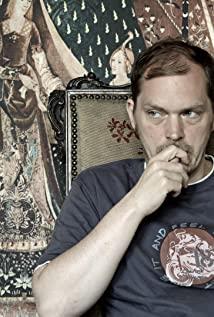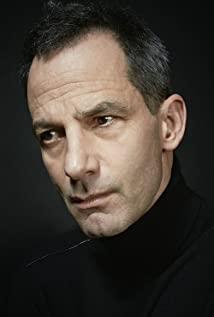When the male protagonist first appeared, he was looking at a painting in the gallery. This painting was called "The Monk by the Sea". The lonely monk faces the vast sea with clouds and the wind. In the wider natural world, it seems that There is some kind of huge spiritual power, and the monks by the sea seem to have the confidence to sense the wider world. At this moment, there is a trace of ecstasy in the eyes of the male protagonist, but it flashes by.
This painting does not appear here for no reason, the meaning of the painting itself sets the tone of the film
I think this painting was chosen not only to express loneliness, although director Wim Wenders has always been known for his alienation and emptiness.
In addition to loneliness, there is also a human response to a larger theme, such as facing nature, observing the sky before a big storm, coming to a green valley with few people traveled, the silence in the early morning mist, seeing the first The moment the sun's rays hit the woods, anyone who has had the same experience will know that there is a certain sublime force in nature that man feels in a particular moment of solitude.
Such a grand theme needs to be integrated into a love story carrier, how to do it
Or what does love have to do with the power of nature?
Starting from this meaningful painting, it explains the identity of the male protagonist as an agent, and the agent must go on vacation before performing the task. The place he chose was Dieppe, northern France.
Why Dieppe?
In addition to the magnificent white sandy beaches, towering cliffs, and beautiful scenery, Dieppe also has an important historical event. It used to be the site of the tragic Dieppe raid during World War II.
When the hero and heroine met in the film, the heroine took him to see the ruins of a World War II bunker on the beach
The male protagonist blurted out excitedly, that's why I'm here!
So why Dieppe? That year, the Dieppe raid ended in a complete fiasco of the Allies, with a large number of soldiers casualties, but this failure also accumulated important amphibious landing combat experience for the subsequent Normandy landings. Among them, Mountbatten later commented on the historical significance of the battle. Says: For every soldier killed in the Dieppe Raid, 10 fewer soldiers were killed in the Normandy D-Day.
What does this revelation mean to the male protagonist? At that time, the male protagonist said that there were more and more terrorist attacks in Europe, and he decided to trace the source and go deep into Somalia, digging out the base of the Muslim extremist organization and destroying the source of the terrorist bomb. Even his colleagues have repeatedly advised him not to do this kind of task, because it is too risky, and he will die in minutes and come back.
And the male protagonist came to Diap at this time. His determination and belief are that every "I" is included in the concept of human beings. In other words, it is to sacrifice the ego and achieve the greater ego. Every soldier who died in the Battle of Diap contributed to the success of the Allied forces and the continuation of the light of mankind.
He came to Diap to strengthen his beliefs!
Later, he and the heroine lay in bed and read John Donne's poem "No Man is an Island" to her. Following this poem, the heroine asked him, "Don't you feel ashamed that you are both an admirer of Dorne and a patriot who believes in God?". My understanding is that the wise heroine summed up a contradiction in the character of the hero. There is a lot of emptiness in Donne's poetry, which represents a character trait of the hero. Sacrificing the ego is not only for the greater cause of mankind, but also Some of his reflections on life.
So even in extreme Islam, they are part of human beings. When the latter two discussed the news of the terrorist attack, the male protagonist said painfully, the biggest obstacle to changing them is also the most beautiful part, that is, they have the ability to to believe
This is the charm of the male protagonist's very rational thinking and strong empathy.
That's why he focused and seriously asked the heroine what it would be like to feel the deadly danger of deep-sea exploration. Notice that he doesn't ask why, but what will happen, how he feels
So later, when the Somali doctor said disillusionedly that everyone dies, everything is meaningless, he recalled this conversation, the heroine said that before suffocating in the deep sea submarine, there is enough time to think, heroine As soon as he lowered his head, his face was genuinely silent, mixed with a trace of taboo and calm powerlessness.
I have to praise, the expression of this camera at that time, Kanmei gave too plump
In the face of a more unknown force, in the face of a range that does not involve any human power itself.
Faced with a choice to make, knowing that there is death, Faced with the consequences of accepting death
The two people's life understandings coincided, and they responded to each other. The above conversation was made by the two of them just after having lunch and walking in the small forest. They were strangers before eating. I think the male protagonist should have already Fall in love with the mistress. There is a sense of sympathy at this moment.
The character building of the male protagonist and his subsequent spiritual growth are very complete. In the film, the recollections of the male protagonist are interspersed many times at the point of life and death to increase his faith and strength.
Although the two meet by chance, their deep feelings have evolved into a heart-to-heart in the face of the test of life and death.
View more about Submergence reviews











